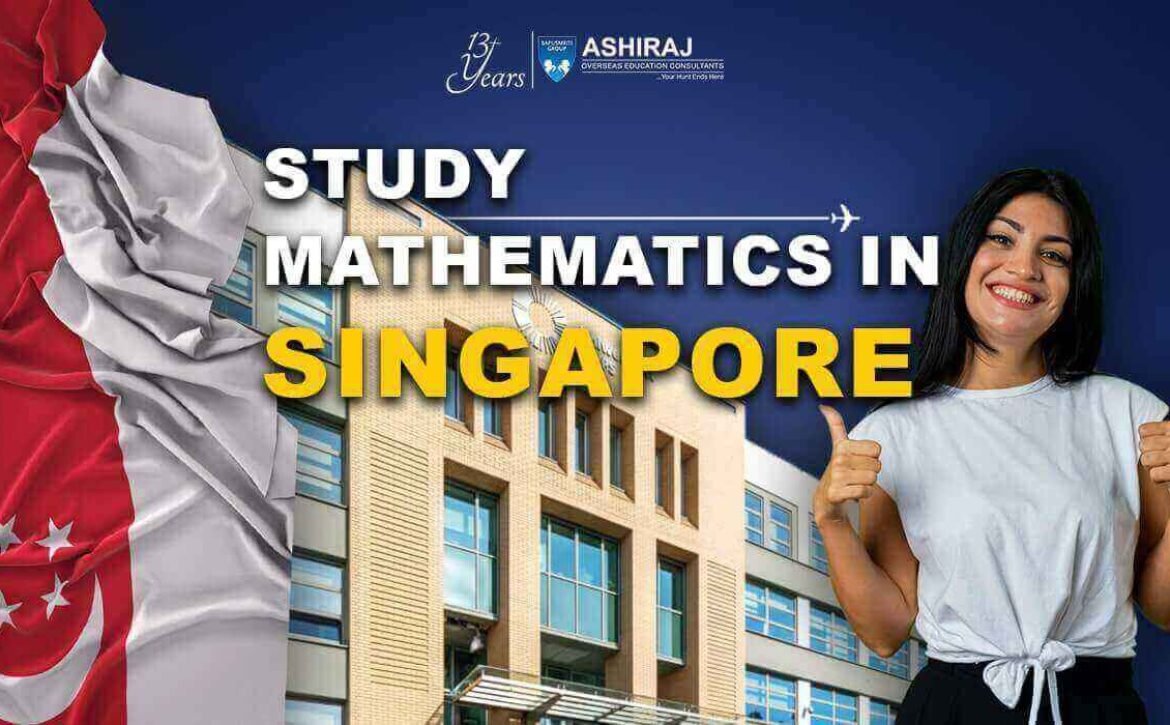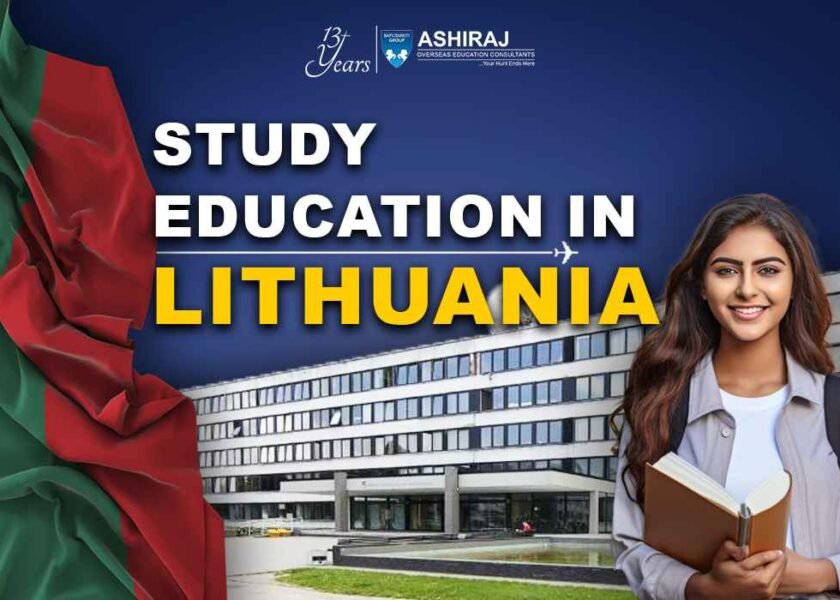
Mathematics in Singapore
In Singapore, Mathematics stands as a cornerstone of education, embodying the nation’s commitment to academic excellence and problem-solving skills. Renowned globally for its rigorous curriculum and high standards, Mathematics in Singapore intertwines traditional methods with innovative approaches to cultivate a deep understanding of mathematical concepts among students. The pedagogical strategies adopted in Singapore emphasize not only rote memorization but also critical thinking, fostering a generation of individuals adept at applying mathematical principles to real-world scenarios. Through a holistic approach encompassing both theoretical knowledge and practical application, Mathematics in Singapore equips learners with invaluable skills necessary for success in various fields, from STEM disciplines to everyday problem-solving challenges.
The prominence of Mathematics in Singapore underscores the nation’s dedication to nurturing a mathematically proficient workforce and fostering a culture of innovation and analytical thinking. By prioritizing Mathematics education and continually refining teaching methodologies, Singapore has earned its reputation as a global leader in mathematical achievement. The country’s emphasis on Mathematics as a fundamental pillar of education reflects its commitment to equipping its citizens with the skills and competencies needed to thrive in an increasingly complex and interconnected world. Through a comprehensive and dynamic approach to Mathematics education, Singapore continues to shape the next generation of thinkers, problem-solvers, and innovators, ensuring a bright future for generations to come.
Why to Study Mathematics in Singapore?
- Academic Excellence: Mathematics in Singapore is renowned for its rigorous curriculum and high standards, ensuring a top-quality education for students.
- Innovative Teaching Methods: Singapore adopts innovative pedagogical strategies that emphasize critical thinking and practical application of mathematical concepts.
- Real-World Relevance: The curriculum in Singapore integrates real-world scenarios, equipping students with the skills to apply mathematical principles in various fields.
- Global Recognition: Singapore’s Mathematics education system is globally recognized, providing students with credentials that are highly valued worldwide.
- Career Opportunities: A strong foundation in Mathematics opens doors to a wide range of career opportunities, including STEM fields, finance, and technology.
- Problem-Solving Skills: Studying Mathematics in Singapore develops strong problem-solving skills, essential for navigating complex challenges in both professional and personal spheres.
- Culturally Diverse Environment: Singapore offers a culturally diverse environment, providing students with exposure to different perspectives and approaches to Mathematics.
- State-of-the-Art Facilities: Institutions in Singapore boast state-of-the-art facilities and resources, enhancing the learning experience for Mathematics students.
- Global Networking: Studying Mathematics in Singapore provides opportunities for students to network with peers and professionals from around the world, enriching their academic experience.
- Future Preparedness: With a focus on cutting-edge mathematics education, studying in Singapore prepares students for the challenges and opportunities of the future.
In conclusion, studying Mathematics in Singapore offers a wealth of benefits, from academic excellence and innovative teaching methods to global recognition and diverse career opportunities. With its emphasis on practical application and problem-solving skills, Singapore provides students with a solid foundation for success in the dynamic and interconnected world of mathematics.
Top Universities to Study Mathematics in Singapore
University | QS World University Rankings 2023 | Type of University | Average Annual Fees | Programs Offered |
National University of Singapore (NUS) | 1 | Public | SGD 8,000 – 11,000 | Mathematics, Applied Mathematics, Statistics |
Nanyang Technological University (NTU) | 2 | Public | SGD 8,000 – 12,000 | Mathematics, Mathematical Sciences, Actuarial Science |
Singapore Management University (SMU) | 11 | Public | SGD 13,000 – 17,000 | Quantitative Finance, Data Science, Economics |
Singapore University of Technology and Design (SUTD) | 51-100 | Public | SGD 10,000 – 14,000 | Engineering Systems and Design, Information Systems Technology and Design |
Singapore Institute of Technology (SIT) | Not Ranked | Public | SGD 10,000 – 12,000 | Mathematics and Economics, Information Security |
In Singapore, several universities excel in providing top-notch education in Mathematics. These institutions not only offer diverse programs but also rank high globally. The National University of Singapore (NUS), topping the QS World University Rankings 2023, is renowned for its Mathematics programs alongside Applied Mathematics and Statistics. Following closely is Nanyang Technological University (NTU), offering Mathematics alongside Mathematical Sciences and Actuarial Science. Singapore Management University (SMU), ranked 11th globally, provides programs like Quantitative Finance and Data Science. Singapore University of Technology and Design (SUTD) and Singapore Institute of Technology (SIT) also offer competitive Mathematics programs with a focus on various interdisciplinary fields. With their stellar rankings and diverse offerings, these universities stand as prime choices for pursuing Mathematics in Singapore.
Course Curriculum for Mathematics in Singapore
- Comprehensive Foundation: Mathematics in Singapore emphasizes building a strong foundation in fundamental concepts such as algebra, calculus, and geometry.
- Integrated Approach: The curriculum integrates theoretical knowledge with practical applications, ensuring students understand the real-world relevance of mathematical principles.
- Problem-Solving Focus: Mathematics in Singapore places a strong emphasis on problem-solving skills, with students encouraged to tackle complex mathematical problems using various strategies.
- Interdisciplinary Learning: Students have the opportunity to apply mathematical concepts to other fields such as engineering, economics, and computer science, fostering interdisciplinary connections.
- Advanced Topics: The curriculum includes advanced topics such as differential equations, probability theory, and optimization, catering to students with a deeper interest in mathematics.
- Hands-on Experience: Mathematics education in Singapore incorporates hands-on activities, projects, and mathematical modeling to enhance learning and reinforce concepts.
- Technology Integration: Students are introduced to mathematical software and tools to aid in visualization, analysis, and problem-solving, preparing them for modern computational environments.
- Continuous Assessment: Assessment methods include regular tests, quizzes, projects, and practical examinations, ensuring continuous monitoring of students’ progress and understanding.
Overall, the course curriculum of Mathematics in Singapore is designed to equip students with a solid foundation in mathematical principles, problem-solving skills, and the ability to apply mathematics in various contexts, reflecting the country’s commitment to excellence in education.
Eligibility Criteria & Admission Requirements for MS in Mathematics in Singapore
- Language Proficiency: Applicants must demonstrate proficiency in English through standardized tests such as IELTS or TOEFL. The minimum scores required may vary depending on the institution, but typically range from IELTS 6.5-7.0 or TOEFL 90-100.
- Standardized Test Scores: Most universities require applicants to submit scores from either GRE or GMAT. The minimum scores required may vary across institutions, with GRE scores typically ranging from 310-320 and GMAT scores from 650-700.
- Academic Certificates: Applicants must provide academic transcripts and certificates demonstrating their qualifications, typically including high school diplomas and bachelor’s degrees in relevant fields.
- Work Experience: While not always mandatory, some universities may consider relevant work experience as part of the application process, particularly for postgraduate programs.
- Passport & Student Visa: International applicants must possess a valid passport and obtain a student visa to study in Singapore. The visa application process may vary depending on the applicant’s nationality and the duration of the intended stay.
Test | Minimum Score |
IELTS | 6.5 – 7.0 |
TOEFL | 90 – 100 |
GRE | 310 – 320 |
GMAT | 650 – 700 |
Ensuring compliance with these eligibility criteria is crucial for prospective students aspiring to pursue Mathematics in Singapore, facilitating a smooth application process and increasing the likelihood of admission to top-tier institutions.
Documents Required for Studying Mathematics in Singapore
- Passport: A valid passport is essential for international students applying to study Mathematics in Singapore.
- Two Letters of Recommendation (LOR): LORs from academic or professional referees attest to the applicant’s qualifications, character, and potential for success in the program.
- Statement of Purpose (SOP): The SOP provides insight into the applicant’s academic and career goals, explaining why they wish to pursue Mathematics in Singapore.
- Curriculum Vitae (CV): A comprehensive CV outlines the applicant’s academic achievements, work experience, extracurricular activities, and any relevant skills or qualifications.
- Official High School Transcripts: Transcripts from high school or secondary education institutions document the applicant’s academic performance and achievements.
- Educational Certificates: Copies of educational certificates, such as diplomas or degrees, validate the applicant’s academic qualifications.
- Work Experience Certificate: If applicable, a work experience certificate provides evidence of the applicant’s professional experience in Mathematics or related fields.
- Proof of Financial Resources: Applicants must demonstrate sufficient financial resources to cover tuition fees, living expenses, and other costs associated with studying Mathematics in Singapore.
Ensuring the timely preparation and submission of these documents is essential for a successful application process to Mathematics programs in Singapore, enabling prospective students to fulfill admission requirements and pursue their academic aspirations in the country.
Admission Process for Mathematics in Singapore
- Research Institutions: Begin by researching universities in Singapore offering Mathematics programs, considering factors such as rankings, curriculum, faculty expertise, and facilities.
- Review Eligibility Requirements: Check the eligibility criteria for Mathematics programs, including academic qualifications, standardized test scores (such as GRE or GMAT), language proficiency (IELTS or TOEFL), and any additional requirements.
- Prepare Documents: Gather necessary documents, including academic transcripts, certificates, standardized test scores, passport, letters of recommendation (LOR), statement of purpose (SOP), curriculum vitae (CV), and proof of financial resources.
- Submit Application: Complete the online application form provided by the chosen university, ensuring all required information and documents are accurately filled and attached.
- Pay Application Fee: Pay the application fee as required by the university, usually through online payment methods.
- Await Admission Decision: After submitting the application, wait for the university to review and process the application. This may take several weeks to months, depending on the institution’s admission timeline.
- Interview (if required): Some universities may require applicants to attend an interview as part of the admission process. Prepare adequately and participate in the interview as scheduled.
- Receive Admission Offer: If successful, the university will send an official admission offer letter. Review the offer carefully and follow any instructions provided.
- Accept Offer and Apply for Visa: Accept the admission offer by the specified deadline and proceed to apply for a student visa (if applicable), following the guidelines provided by the university and relevant authorities.
- Prepare for Departure: Once the visa is approved, make necessary arrangements for travel, accommodation, and other logistics to begin your Mathematics studies in Singapore.
Following these steps meticulously ensures a smooth admission process to Mathematics programs in Singapore, facilitating a seamless transition into academic life in the country.
“Education is the most powerful weapon which you can use to change the world.”
Nelson Mandela
Cost of Mathematics Course in Singapore
- Tuition Fees: The tuition fees for Mathematics programs in Singapore vary depending on the university, level of study, and program duration. On average, international students can expect to pay between SGD 8,000 to SGD 15,000 per academic year for undergraduate programs, while postgraduate programs may cost between SGD 10,000 to SGD 25,000 per year.
- Accommodation: Accommodation costs in Singapore can range from SGD 400 to SGD 2,000 per month, depending on factors such as location, type of accommodation, and amenities. Students have options ranging from university dormitories to private rental apartments.
- Living Expenses: The cost of living in Singapore, including food, transportation, utilities, and miscellaneous expenses, is estimated to be around SGD 800 to SGD 1,500 per month, depending on one’s lifestyle choices.
- Books and Supplies: Additional expenses for books, stationery, and other study materials may amount to approximately SGD 500 to SGD 1,000 per academic year.
- Health Insurance: International students are required to have health insurance coverage during their stay in Singapore, which can cost around SGD 500 to SGD 1,000 per year.
Overall, while the cost of studying Mathematics in Singapore may vary, it offers a high-quality education and excellent opportunities for academic and personal growth. With proper financial planning and budgeting, students can pursue their Mathematics studies in Singapore effectively.
Scholarships for Mathematics Courses in Singapore
Scholarship Name | Amount | Application Deadline |
Singapore International Graduate Award (SINGA) | Full tuition fees, monthly stipend of SGD 2,000, and one-time SGD 2,000 settling-in allowance | June/December intake (varies annually) |
NUS Global Merit Scholarship | Up to full tuition fees coverage, monthly stipend, and other allowances | Varies (check university website for details) |
NTU Nanyang President’s Graduate Scholarship | Full tuition fees, monthly stipend of SGD 3,000 to SGD 3,500, and other allowances | January/July intake (varies annually) |
ASTAR Graduate Scholarship | Full tuition fees, monthly stipend, and other allowances | Varies (check ASTAR website for details) |
SUTD President’s Graduate Fellowship | Full tuition fees, monthly stipend, and additional benefits | January/September intake (varies annually) |
These scholarships provide opportunities for outstanding Mathematics students to pursue their studies in Singapore with financial support. The amounts and application deadlines may vary, so applicants are advised to check the respective scholarship websites for the most up-to-date information. By availing these scholarships, students can alleviate the financial burden of studying Mathematics in Singapore while focusing on their academic and professional development.
Career Opportunities After Mathematics in Singapore
Job Profile | Average Salary (SGD) |
Data Analyst | 50,000 – 80,000 |
Actuary | 70,000 – 120,000 |
Financial Analyst | 60,000 – 90,000 |
Quantitative Researcher | 80,000 – 150,000 |
Operations Research Analyst | 55,000 – 90,000 |
Mathematics graduates in Singapore have a plethora of career opportunities across various industries. Data analysts use mathematical techniques to analyze large datasets and derive insights for decision-making, with an average salary ranging from SGD 50,000 to SGD 80,000. Actuaries utilize mathematical and statistical methods to assess risk and uncertainty in finance and insurance sectors, earning salaries between SGD 70,000 to SGD 120,000. Financial analysts employ mathematical models to evaluate investments and financial trends, with salaries averaging between SGD 60,000 to SGD 90,000. Quantitative researchers develop mathematical models and algorithms for investment strategies, earning between SGD 80,000 to SGD 150,000. Operations research analysts apply mathematical optimization techniques to improve business operations, with salaries ranging from SGD 55,000 to SGD 90,000. With their strong analytical skills and mathematical proficiency, Mathematics graduates in Singapore are well-equipped to excel in diverse and lucrative career paths.
Frequently Asked Questions About Mathematics in Singapore
The top universities for Mathematics in Singapore include the National University of Singapore (NUS), Nanyang Technological University (NTU), Singapore Management University (SMU), Singapore University of Technology and Design (SUTD), and Singapore Institute of Technology (SIT).
Eligibility criteria typically include academic qualifications, language proficiency (IELTS or TOEFL), standardized test scores (GRE or GMAT), and submission of relevant documents such as transcripts, certificates, and letters of recommendation.
Yes, there are several scholarships available for Mathematics students in Singapore, including the Singapore International Graduate Award (SINGA), NUS Global Merit Scholarship, NTU Nanyang President’s Graduate Scholarship, ASTAR Graduate Scholarship, and SUTD President’s Graduate Fellowship.
Mathematics graduates in Singapore have diverse career opportunities in fields such as data analysis, actuarial science, financial analysis, quantitative research, and operations research, with competitive salaries ranging from SGD 50,000 to SGD 150,000 per year.
Yes, international students can study Mathematics in Singapore by fulfilling the admission requirements of universities, including obtaining a student visa, meeting language proficiency standards, and submitting required documents.
The cost of studying Mathematics in Singapore includes tuition fees, accommodation, living expenses, books, supplies, and health insurance, which may vary depending on the university and lifestyle choices, averaging between SGD 20,000 to SGD 40,000 per year.
Prospective students can apply for Mathematics programs in Singapore by researching universities, checking eligibility criteria, preparing required documents, submitting online applications, paying application fees, and following specific deadlines.
Some universities in Singapore may offer part-time study options for Mathematics programs, allowing students to balance their studies with work or other commitments.
Mathematics programs in Singapore often employ a combination of lectures, tutorials, practical sessions, projects, and hands-on activities to enhance students’ understanding and application of mathematical concepts.
Support services for Mathematics students in Singapore may include academic advising, tutoring, counseling, career guidance, library resources, and access to research facilities, aimed at facilitating their academic and personal development.




